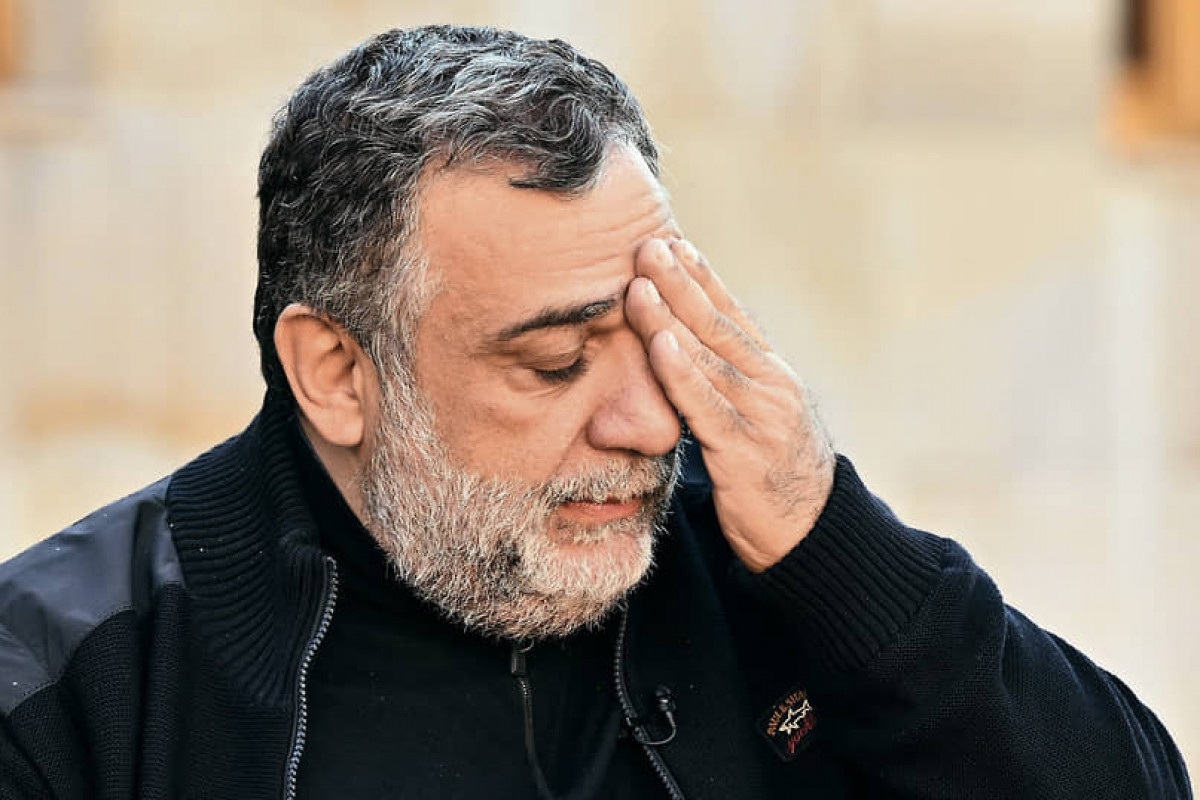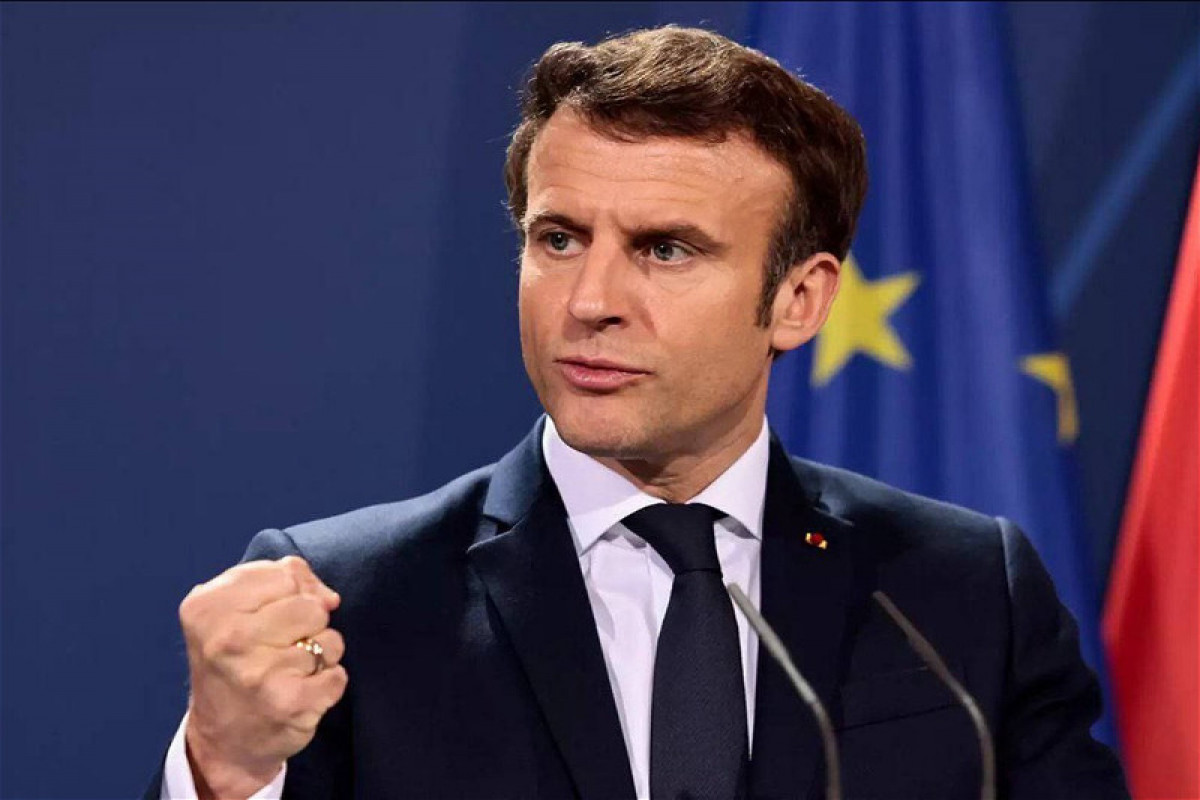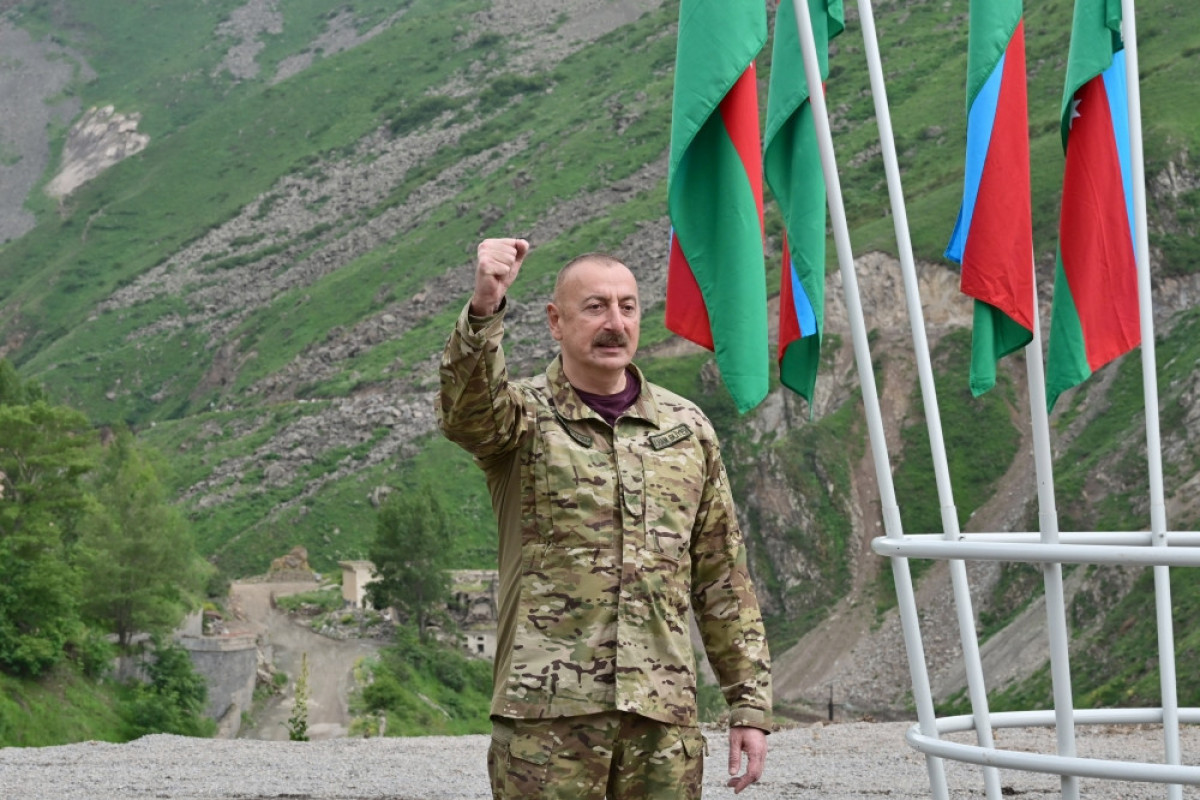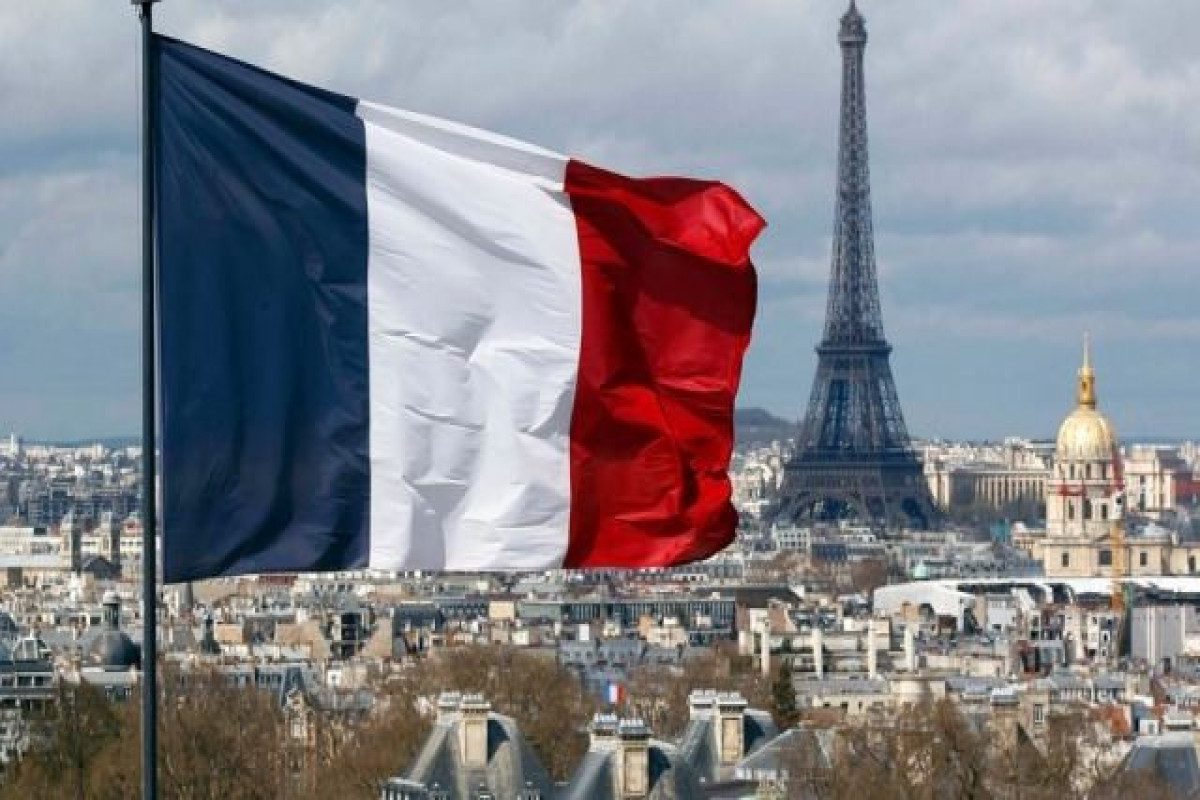The analysis entitled “The Republic of Azerbaijan: A Model of Good Governance” assesses socio-political situation in the country, preparations for the elections, pre-election environment and other issues. APA presents the report:
“On October 9 2013, 4,9 millions of Azeri voters will go to the polls to elect their president and determine the future direction of their old but relatively recent independent nation. Among those nominated for the election are members from the New Azerbaijan Party, the Freedom Party, the Liberal Democratic Party, Citizen and Development Party, the Social Democratic Party, United Azerbaijan Popular Front Party, Modern Musavat Party, National Revival Movement Party, as well as independent candidates. The main candidates are incumbent president Ilham Aliyev, who is running for a third presidential term, and screenwriter, Rustam Ibragimbekov, designated by the newly formed National Council of Democratic Force, an alliance of the country’s opposition parties, but due to the fact of his Russian citizenship he could not run for presidency as domestic laws prescribes it. The official campaign will begin on September 16, allowing other individuals to register their candidacy until September 9.
For months, the government of Azerbaijan has reiterated its strong commitment to organize free and fair, transparent, and objective elections. In this regard, the country as improved its legal framework and has highlighted the importance it attaches to a close cooperation with international organizations. Moreover, authorities made significant efforts to ensure transparency – for example, the number of polling stations that will be monitored through internet will be increased from 10 per cent to 20 per cent. The number of web-cameras installed in the precincts, will also be increased further: whereas at previous election there were installed 500 cameras, in 2013 presidential election it reports about 1000 cameras to be installed. The entire electoral process is proving that the elections in Azerbaijan are held in a transparent manner, with a level corresponding to European standards.
We have to note that several international observers have issued positive comments on the pre-electoral period, such as the Chairman of the CIS’s Executive Committee Sergey Lebedev, who had already noted out the high activity of the voters during the last presidential elections. “Frankly speaking, I haven't received any negative comments on the election preparations”, he said this year, whereas Council of Europe’s Ukrainian member Ivan Popescu praised “a very well-organized presidential elections in Azerbaijan”.
Despite those praises, it is therefore legitimate to express our surprise that the OSCE’s Office for Democratic Institutions and Human Rights (OSCE/ODIHR) decided to publish an ill-thought-out report, denying all the progress achieved by the Azerbaijani democracy in the past twenty years, unduly presenting the country as an authoritarian regime. Also surprising is the fact that the OSCE Parliament Assembly (PA)’s President Ranko Krivokapic announced that his assembly would not send its observers to the forthcoming elections in Azerbaijan, officially for the reason that the date for elections coincides with the last stage of the preparation of the Assembly's Autumn Meeting on October 13-15 in Budva, Montenegro.
As we shall demonstrate in the present report, these critical assessments coming from the OSCE have little in common with the reality on the ground. After a short analysis of the situation in Azerbaijan and of the new challenges encountered by the OSCE, we shall therefore present an alternative vision of the Azerbaijani democracy and we shall attempt to answer the main issues raised by the authors of the OSCE report. We will also compare Azerbaijan’s system to several other vote codes across the world, including in Western Europe and North America. In this way, we shall demonstrate that Azerbaijan needs no lesson from abroad in order to consolidate its own democratic process.
A presentation of Azerbaijan
Azerbaijan is a small nation located on the Caspian Sea, at the crossroads of Europe, the Middle East and Central Asia. The country holds important gas and oil resources and occupies a pivotal position, bordering the Islamic republic of Iran and the restive Russian republic of Dagestan. It has a total surface of 86,600 km² and is sharing borders with Armenia, Georgia, Iran, Russia and Turkey (9 km between the
Autonomous Republic of Nakichevan and the Turkish province of Iğdır). The capital is Baku, on the southern shore of the Absheron Peninsula. The city has an estimated population of above 2 million people.
Azerbaijan has a population of around 9million people, mostly belonging to the Azeri Turkish ethnic group. More than 90% of the population follows Islam, but the religious affiliation is mostly nominal, as most people are actually practicing a very moderate form of their religion. The national language is Azerbaijani, but Russian remains a Lingua Franca for social and business relations. The use of English has smoothly progressed over the past years in the economic sector. The main minority groups are Russians, Lesgians, Avars, Talishs, Kurds and Armenians. It is however worth mentioning that nowadays about 30000 ethnical Armenians live in Azerbaijan without any discrimination whereas no one ethnical Azerbaijan person allows living in Armenia. Part of Azerbaijani Armenians live in the occupied enclave of NagornoKarabakh, outside the scope of Baku’s effective authority.
The country belongs to several networks of alliance and is members of many international organizations. The Republic of Azerbaijan joined United Nations on March 2, 1992, in the months directly following the collapse of the Soviet Union. It is also a member of the Council of Europe and of the Organization for Security and Cooperation in Europe (OSCE), which is running the Minsk Group to find a negotiated resolution to the Nagorno-Karabakh conflict. It is still a member of the Community of Independent States (CIS) but it refused to join Collective Security Treaty Organization (CSTO). On the contrary, it is a founding member of the pro-Western GUAM Organization for emocracy and Economic Development. It has also participated in the US-led military actions in Iraq and Afghanistan. It is lastly worth mentioning that Azerbaijan has developed very close economic, cultural and diplomatic ties since independence with Turkey, its western “grand-brother”. However, it has favoured a more balanced external policy since the middle of the 1990’s, especially towards Russia.
OSCE, a cold-war time organization in crisis
As it can be found on the website of the organization, the OSCE is the direct descendant of the Conference on Security and Co-operation in Europe (CSCE), which was founded on August 1st, 1975 by the signature the Helsinki Final Act, after two years of discussions in Helsinki and Geneva. The “Declaration on Principles Guiding Relations between Participating States” comprised in the Helsinki Final Act listed ten major commitments, also referred to as the “Decalogue”:
1. Sovereign equality, respect for the rights inherent in sovereignty
2. Refraining from the threat or use of force
3. Inviolability of frontiers
4. Territorial integrity of States
5. Peaceful settlement of disputes
6. Non-intervention in internal affairs
7. Respect for human rights and fundamental freedoms, including the freedom of
thought, conscience, religion or belief
8. Equal rights and self-determination of peoples
9. Co-operation among States
10. Fulfillment in good faith of obligations under international law
As one can see, the “Helsinki process” was anchored in the political context of the early 1970’s, which also led to the signing of the SALT I treaty in 1972. For 15 years, the CSCE indeed provided a forum for dialogue between the West and the Communist bloc, functioning, as it is described on the organization’s website, “as a series of meetings and conferences that built on and extended the participating States' commitments”. But it could be underlined that, in those years, the organization registered very few concrete achievements in the field of supporting and extending human rights and civil liberties in the communist bloc. However, the end of the Cold War and the challenges posed by the establishing of a new global geopolitical order forced the CSCE had to reinvent itself. As soon as 1990, it launched a process leading to the creation of permanent institutions and operational capabilities. It also adopted the “Charter of Paris for a New Europe”, to help former Eastern bloc-countries to reach western standards as quickly as possible after the fall of Communism. It is in this ideological context that the member stated decided to change the organization’s name from CSCE to OSCE during the Budapest Summit of Heads of State or Government in December 1994. In a report issued by the Geneva Centre for the Democratic Control of Armed Forces (DCAF) in 2005, political analyst Victor-Yves Ghébali points out three major problems illustrating the existential crisis faced by the organization since it has change its operational structure and enhancing its :
“The first problem is related to the structural violations of major OSCE commitments by many States in the OSCE region.
The second has to do (as discussed below) with Russia's allegations about the intrusiveness of Long-Term Mission (LTM) operations and ODIHR's ‘biased’ monitoring activities.
The third concerns the increasingly divergent positions of the European Union and the United States on such significant matters such as capital punishment, torture, and freedom of religion (status of sects as “nontraditional religions”) and the limits of freedom of information.”
Indeed, we need to emphasize that previous OSCE initiatives have been met with controversy elsewhere in the world, including in the western world. The planned intervention of election monitors from Europe and Central Asia, at the initiative of leftist civil rights groups, has also drawn criticism from several political organizations and representatives of the local authorities in the United States. As an example, we must mention the open letter send to the OSCE in October 2012 by Texas Attorney General Greg Abbott, informing the organization that internationals observers would not be welcomed within 100 feet from polling places in the state:
“While it remains unclear exactly what your monitoring is intended to achieve, or precisely what tactics you will use to achieve the proposed monitoring, OSCE has stated publicly that it will visit polling stations on Election Day as part of its monitoring plan. ...
If OSCE members want to learn more about our election processes so they can improve their own democratic systems, we welcome the opportunity to discuss the measures Texas has implemented to protect the integrity of elections. However, groups and individuals from outside the United States are not allowed to influence or interfere with the election process in Texas. This state has robust election laws that were carefully crafted to protect the integrity of our election system. All persons— including persons connected with OSCE—are required to comply with these laws. ...
The OSCE's representatives are not authorized by Texas law to enter a polling place. It may be a criminal offense for OSCE's representatives to maintain a presence within 100 feet of a polling place's entrance. Failure to comply with these requirements could subject the OSCE's representatives to criminal prosecution for violating state law.” At the time, Catherine Engelbrecht, founder of the Houston-based nonpartisan anti-voter fraud organization “True the Vote”, which aims at protecting “the rights of legitimate voters, regardless of their political party”, emphasized the fact that leftist groups are activist groups sought assistance not from American sources, but from the United Nations.
Azerbaijan on the path towards democracy
One of the arguments used in the document to denounce Azerbaijan’s democracy is the “strong presidential system” and the “wide authority” exercised by the executive branch. As have noted the authors, “Among various responsibilities and powers, the president appoints and chairs the Cabinet of Ministers, and appoints the executive authorities at central and regional level. The president also proposes the judges of the Constitutional Court, Supreme Court, Economic Court, and other courts, as well as the general prosecutor to the parliament.”
It is interesting to note that, for example, the constitution of France’s fifth republic, which was adopted under general de Gaulle, also confers considerable powers to the head of State. The president’s prerogatives include, among others, appointing and dismissing the Prime Minister and the members of the government, chairing the Council of Ministers, dissolving the National assembly, calling referendums, appointing the President and a third of the members of Constitutional Court, etc. We must underline that the system was validated by the referendum on the direct election of the President on 28 October 1962, despite a controversy regarding the strengthening of the executive branch at the expense of Parliament. However, we do not think that anyone would say nowadays that the balance of powers in France is undermining the democratic foundations of the Republic. It is therefore justified to apply the same assessments guidelines towards a newly independent State such as Azerbaijan.
At this point, it needs to be recalled that Azerbaijan was plunge into the war since the first days of its independence in 1991, after the invasion of Nagorno-Karabakh by Armenian troops, with the active support of the Russian federation. Given this particularly dramatic situation, the country suffered severe military defeat and lost a huge portion of its territory under the government of past president Abulfaz Elchibey, who stayed in office from June 1992 until June 1993. After a period of growing political instability which led to the overthrown of Elchibey, former Soviet politburo member Heydar Aliyev came back in power in 1993 and developed a political regime which has paved the way towards stability despite the ongoing war.
Still today, the OSCE’s reports itself recognizes that “election will take place in the context of the ongoing conflict with Armenia and the occupation of a sizeable part of the territory of Azerbaijan, [whereas] the large number of internally displaced persons complicates the administration of elections.”
As it was the case in France in 1958, Azerbaijan adopted a new constitution in 1993, becoming a presidential republic based on the separation of powers, with the President acting as the head of state. Since then, Azerbaijani presidents were regularly elected on a 5 year basis. The current president, Ilham Aliyev, hence received 77% of the votes in the election held after the death of his father in 2003, and received a second term in 2008. According to a report issued by the OSCE at the time, the election “marked considerable progress towards meeting OSCE commitments and other international standards”.
Furthermore, the country parliamentary elections are held every five years under the supervision of the Constitutional Court. In contrast with the French model, the president was not empowered by the constitution to dissolve the National Assembly, demonstrating serious respect for the principle of the division of power.
Azerbaijan will to respond to the recommendations of OSCE
Impartial observers cannot doubt the willingness of Azerbaijan authorities to follow the recommendations of OSCE.
To recap, OSCE Election Observation Mission related 2008 Presidential Elections made 27 recommendations. 19 of these have been implemented or were in fact already applied.
Out of the 9 recommendations allegedly not implemented by the sovereign Republic of Azerbaijan where the 3 recommendations concerning the independence of the press and ease of access to media reflect the ignorance of the reality of Azerbaijan. It is very easy to create a newspaper. The only legal requirement is to register his title. There are for instance different radical anti-government newspapers like Azadlyg, Musavat and others. In addition, electronic media are completely free and often fierce with the government. The international press can be found easily on the web in a country that favors the proliferation of providers of Internet access (2 public companies and 38 private companies). It is surprising that the OSCE report considers the question of the press freedom in Azerbaijan with a view of underdeveloped country. We were able to see first hand that the quality of the medias as in the European Union is guaranteed by the best new information technologies.
The five others recommendations that have not been implemented can not be applied in an independent State. Their application implies that Azerbaijan recognize the OSCE right to interfere in the affairs of the State. Despite the willingness of the government, it cannot in any way fail in its primary mission, the protection of the independence and sovereignty of the State. For instance the 14th recommendation implies that the President himself should organize a roundtable with different stakeholders including political parties is unthinkable in a European country. Indeed, could the OSCE ask the French President Francois Hollande to held formal roundtable with members of the opposition? Of course not! Furthermore, in Belgium several city mayors are not appointed due to linguistic dispute, which is an obvious democracy denial. The OSCE never interfered in Belgian domestic affairs asking to the Prime Minister Elio Di Rupo to solve the issue. Why should it be different when it comes to Azerbaijan?
Real popular support for the president
In March 2009, Azerbaijan held a constitutional referendum which led, among others, to the abolition of a two-term presidential limit. As it is mentioned it the OSCE/’ report, The Council of Europe’s Commission for Democracy through Law (Venice Commission) has stated that “explicit constitutional limitations on the successive terms of a president are particularly important in countries where democratic structures and their cultural presuppositions have not yet been consolidated. In the opinion of the Venice Commission, the elimination of the present limitation … would therefore constitute a serious set-back on Azerbaijan’s road to a consolidated democracy.”
However, we have to emphasize the fact that the measure was voted overwhelmingly, demonstrating the support amongst the public after years of strong economic growth and political stability. The government, and above all president Alyev, is widely credited with turning an underdeveloped war-torn post-soviet republic into a modern state. The president’s supporters are also grateful for his management of public affairs, which “has brought stability, development and increasing prosperity to Azerbaijan, while other former Soviet republics are still mired in political turmoil and economic uncertainty.” Moreover, we must add that numerous democratic countries in the world do not limit the number of times a head of state or a head of government’s term may be renewed. In the case of the United Kingdom, for example, Prime Ministers Margaret Thatcher and Tony Blair both won three consecutive elections. In Germany, Chancellor Angela Merkel is currently candidate to her own succession for a third term in office, whereas former Chancellor Helmut Kohl stayed in power for 16 years. The numbers or the examples are indeed legion of political leaders exercising more than two consecutive terms.
The Venice Commission itself conceded it in a report prepared in 2009 at the request of the Council of Europe’s Committee on Political Affairs and Democracy: “[t]he effects of the principles of limitation of mandates and incompatibility of political functions in a given country widely depends not only on their constitutional and legal dimension but mainly on the model of separation of powers in that country.” Given this conclusion, the committee found inappropriate to submit a draft resolution to the Assembly on this matter, arguing that “there are no best practices in the fields covered which would be applicable to all Council of Europe member States.”
Azerbaijan and Armenia: A double standard
A careful reading of the reports produced by the OSCE on electoral processes in Azerbaijan and Armenia also call for comment. You can read in the OSCE/ODIHR Needs Assessment Mission report on the Presidential Election, October 2013 of the Republic of Azerbaijan:
“Composition of all election commissions are nominees of the parliamentary majority. Composition of the election administration remains a contentious issue and several OSCE/ODIHR interlocutors expressed concerns with the formula, stating that in practice it provides pro-government forces with a decisive majority in all commissions and undermines confidence in the impartiality of the election administration. Concerns were also raised with respect to Election Day procedures, including the vote count and tabulation
1. Republic of Azerbaijan, Presidential Election, October 13, OSCE/ODIHR Needs Assessment Mission Report: pages 4,5To recap, OSCE recognized itself, that only one third of the Central Election Commission is appointed by the democratically-elected parliamentary majority. In addition, one can only note that the criticisms above are anonymous and do not correspond to reality setting in evidence by OSCE itself. You can read in the OSCE/ODIHR Needs Assessment Mission Report on Parliamentary Elections 2012 of the Republic of Armenia: “The OSCE/ODIHR interlocutors expressed variable degrees of confidence in the election administration bodies, ranging from complete lack of trust in their impartiality and independence to the belief that the electoral commissions will work in a fully professional, transparent and accountable manner
2. These two passages of OSCE reports that we highlight are indicative of double standards adopted when it comes to explain the cases of the Republic of Azerbaijan and of the Republic of Armenia. It is impossible to believe that OSCE experts have found in Azerbaijan only disgruntled stakeholders of the electoral system, while in Armenia they have found stakeholders perfectly satisfied.
Azerbaijan: Target to be shot
In this context, one is entitled to wonder why the OSCE’s Office for Democratic Institutions and Human Rights has submitted such a hard-hitting document concerning the political situation in Azerbaijan. It has to be reminded once more; both the energy resources and the unique geopolitical position of Azerbaijan at the crossroads of Russia, Turkey and Iran make the country a major issue for the world’s greatest powers. In this context, Azerbaijan has been a constant object of criticism from many sides, particularly since it has engaged in intense cooperation with Israel after independence.
It is to recall attacks issued against Azerbaijan depicts the country as an aggressive authoritarian regime comparable to Belarus (EuFoA, 2011), or that of the Taliban’s in Afghanistan (EAFJD, 2009). For instance, in the EAFJD report, the Brussels-based lobby compared the destruction of the Julfa cemetery to the destruction of the 2 Republic of Armenia, Parliamentary Elections, 2012, OSCE/ODIHR Needs Report Assessment Mission Report: pages 4,5Buddahs of Bamiyan in Afghanistan by the Taliban. In this regard, in response to a statement of MEP Isler-Beguin (Greens-France), who called for equal judgment on Azerbaijan taking into account the cultural heritage destroyed by Armenians in Nagorno-Karabakh, the report says that: “for the Greens group, a testified and universally condemnable act – exactly similar to the destruction of Bamiyan’s Buddahs by the Talibans – must be tolerated if not concealed because of external religious considerations et according to the idea that one should keep the “balance” between an aggressor and its victims.”
The Eurovision contest provided, therefore, the right stage for delivering similar attacks.
Conclusion
The Republic of Azerbaijan is undeniably a special case in the South Caucasu subregion, and even an example of good governance that could be used as model by several countries and government of the area. An external observer could only testify of a stable social welfare, a women condition closely comparable to that of EU member States, or an utter respect of religious minorities.
Let us not forget that these capital indicators of democracy and civil liberties are present in a country faced with the Armenian occupation of an important part of its territory, Nagorno-Karabakh, and which had thus to cater one million people, that is to say around 10% of its own population. Despite major inconvenience, that would have unsettled several other States confronted with foreign occupation, the young Republic of Azerbaijan stayed the course of a political blueprint aiming at social empowerment, civil rights and democracy. One can only stay appalled of the low credit given to this venture by the OSCE, whose recent recommendation tend to occult the country’s astonishing progress.
Logic and political ethics shall lead international bodies, starting with Western democracies, to support the Republic of Azerbaijan on the path it chose to follow: social progress and parliamentary democracy.”






